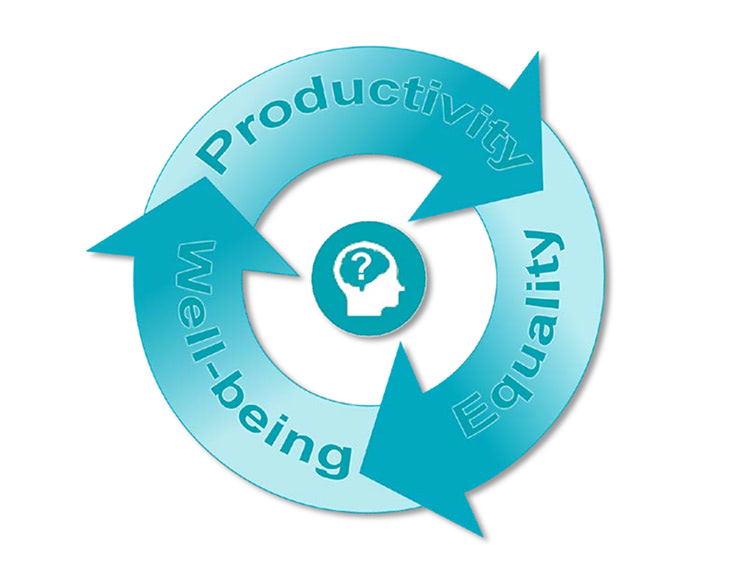Improving productivity: Not a matter of stuffing more into our available hours

This morning (16 May) the ONS released its flash estimate for UK productivity from January to March of this year. Improving productivity is not simply a matter of stuffing more into our available hours. Rather, it is about designing a new way of working that ensures individual employees are happy, motivated, and focused in their roles.
 Adrienne Gormley, Global VP of Customer Experience and Head of EMEA at Dropbox, said:
Adrienne Gormley, Global VP of Customer Experience and Head of EMEA at Dropbox, said:
Our own research recently revealed that nearly half of UK employees believe they don’t work to the best of their abilities even once a week.
The answer to how we can be more productive does not lie in simply being more connected and stuffing more into the hours available.
As individual productivity ultimately comes from being happy, motivated, and focused in our roles, we have to look very closely at the way we are working and collaborating in order to fuel the spark in all of us that helps us stay in the zone and deliver our best work.
We must be both aware of the perils of distraction and optimistic about technology’s capacity to do the heavy lifting, and therefore move us closer to a more meaningful and fulfilling working life.
Every organisation is capable of designing a new way of working that empowers each and every one of us to spend more time on the work that matters. By focusing on unleashing the potential of every individual and team in their organisations, we would be in a better position to tackle the broader productivity challenge.
 Mike Thompson, Head of Apprenticeships, Barclays said:
Mike Thompson, Head of Apprenticeships, Barclays said:
Productivity was a key deliverable on the government’s agenda when the [Apprenitceship] reform was introduced. The aim was to allow businesses to create a pipeline of talent and provide on-the-job training to equip employees with vocation skills necessary for the workforce.
One year on and we’re already seeing these benefits here at Barclays.
Our apprentices contribute a huge productivity impact to the business, with each apprentice contributing £18,000 of net productivity gains over the course of their programme.
This boost not only benefits the apprentices themselves, and of course our business, it also impacts the whole economy and helps to narrow the skills gap between the UK and its competitors abroad – an issue of growing importance in these uncertain political and economic times.
 Lauren Bennett, Senior Researcher, Learning and Work Institute, said:
Lauren Bennett, Senior Researcher, Learning and Work Institute, said:
Mental health issues also have a negative impact on an organisation’s productivity and staff turnover. Mixed anxiety and depression has been estimated to cause one fifth of lost days from work in Britain and replacing staff who leave their roles due to a mental health condition is estimated to cost the UK economy £3.1 billion each year.
Apprentices face the challenge of having to combine working and studying. We know that working has many benefits for someone experiencing mental health issues. Effective mental health support can help learners to cope with this pressure and succeed. As opportunities increase it is important that they are accessible to those with mental health needs. If not, employers will miss out on potentially valuable employees
Patrick Woodman, Head of Research, CMI, said:
Empower your people – The most powerful drivers of job satisfaction are a personal sense of achievement. Where innovative, entrepreneurial and empowering management styles are found, more than 84% of managers are satisfied with their jobs.
Develop better line managers – bad management creates stress and can harm mental health. More open, empowering management styles are connected with lower levels of stress – as well as with higher job satisfaction and greater personal productivity. Employers have to do more to support managers’ professional development.
Phil Coulter, EMEA Head of Technology at Korn Ferry Futurestep, said:
For today’s workforce, money is not necessarily the most effective way of engaging staff with their role, and it needn’t be the most effective way to reward them, either.
In order to keep abreast of changing expectations, organisations must ensure that they have the pulling power to attract the best. From flexible working schemes for a better work-life balance and increased holiday allowance, to robust career development programmes and creative working environments, employers need to communicate the benefits associated with their brand.












Responses